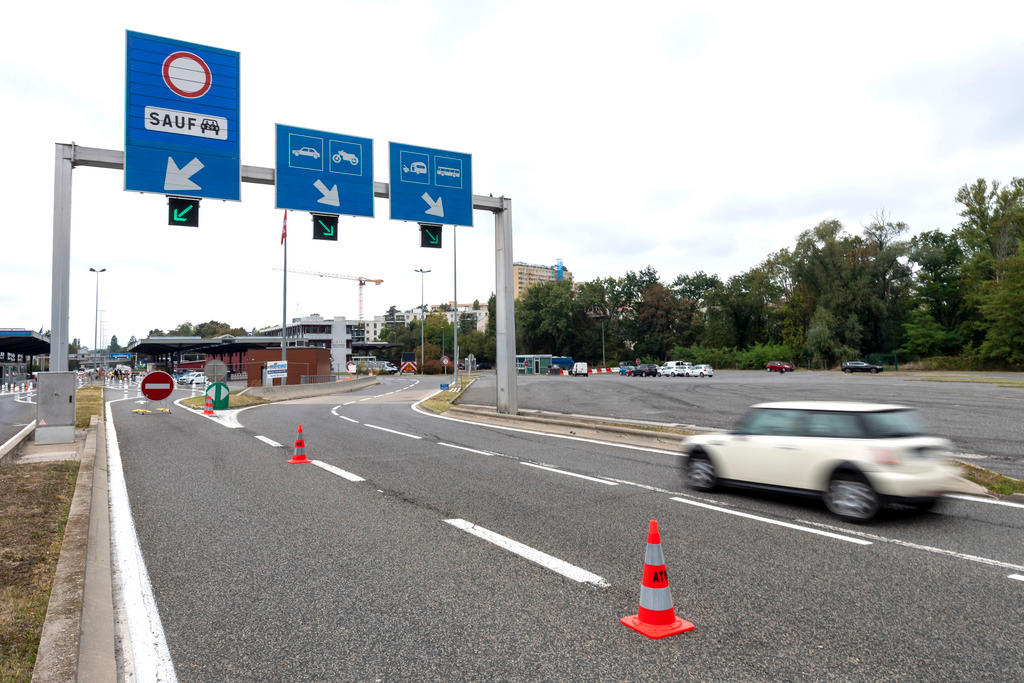
Declining trend of cross-border workers continues

The number of cross-border workers in Switzerland – except those from France – has dropped for the second consecutive quarter. This marks the second year-on-year decline by quarter in 20 years.
According to numbers released by the Federal Statistical OfficeExternal link on Thursday, the fourth quarter of 2018 saw 2,000 fewer people commuting to Switzerland to work compared to the same period the year before. There were fewer commuters from Italy (-4.1%) and Germany (-2.4%), but more from France (+1.3%).
In terms of sheer numbers just over half came from France (55%), about a quarter from Italy (22.4%) and a fifth from Germany (19.2%). At the end of 2018, 314,000 cross-border workers were working in Switzerland.
Major centres
Four out of five cross-border workers were working in three Swiss economic hubs: over a third in the Lake Geneva region (37.3%), almost a quarter in Northwestern Switzerland (22.1%) and a fifth in Ticino (19.8%). The absolute number was highest in the Lake Geneva Region (117,000).
However, the situation is different in terms of their share in the labour force. While the Lake Geneva region (12.1%) and Northwestern Switzerland (10.3%) had fairly similar shares, the proportion of cross-border commuters in Ticino represented more than a quarter of the employed workforce (27.3%).

More
Geneva’s cross-border workers are less qualified, live further afield

In compliance with the JTI standards
More: SWI swissinfo.ch certified by the Journalism Trust Initiative





























You can find an overview of ongoing debates with our journalists here . Please join us!
If you want to start a conversation about a topic raised in this article or want to report factual errors, email us at english@swissinfo.ch.